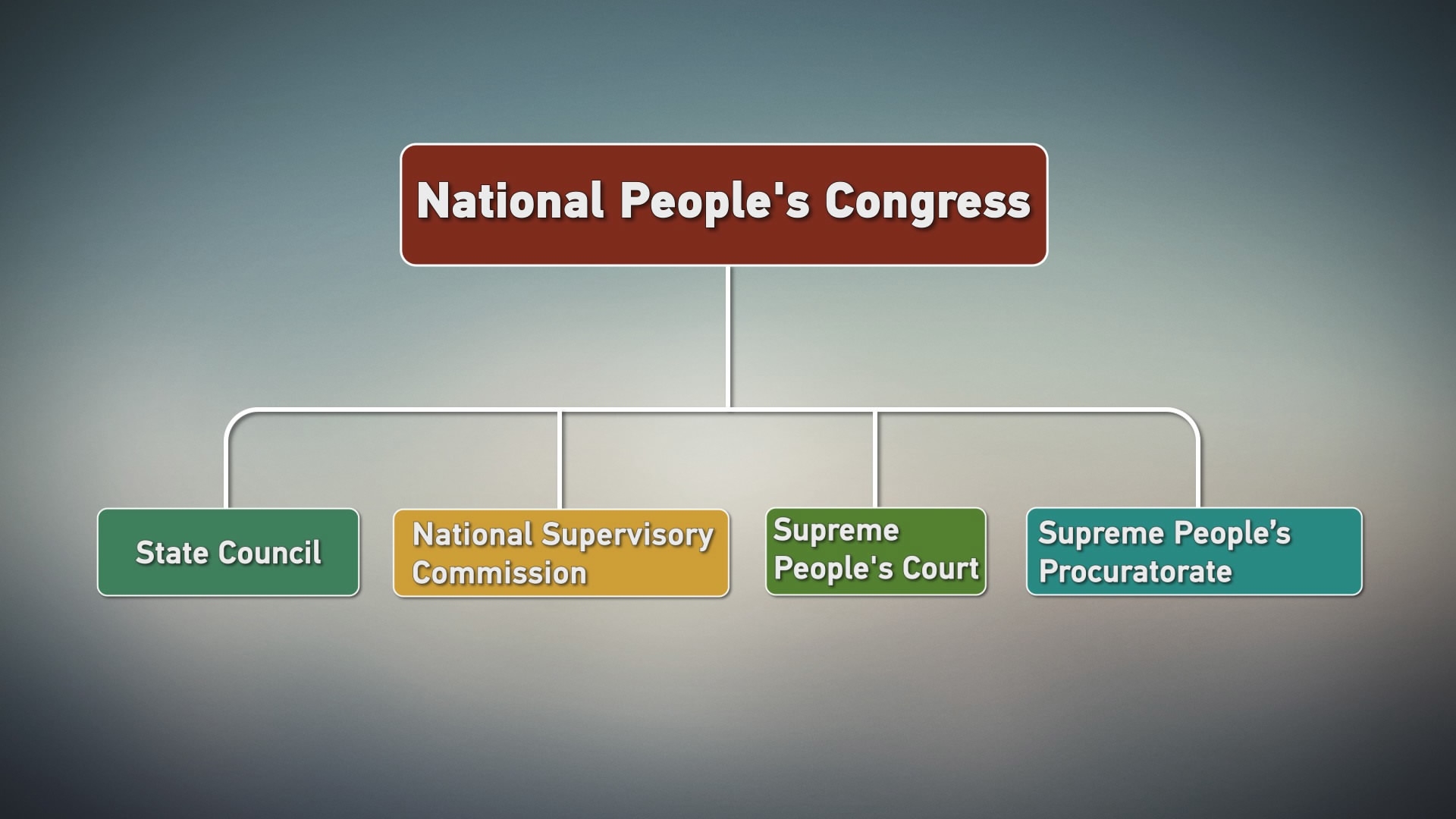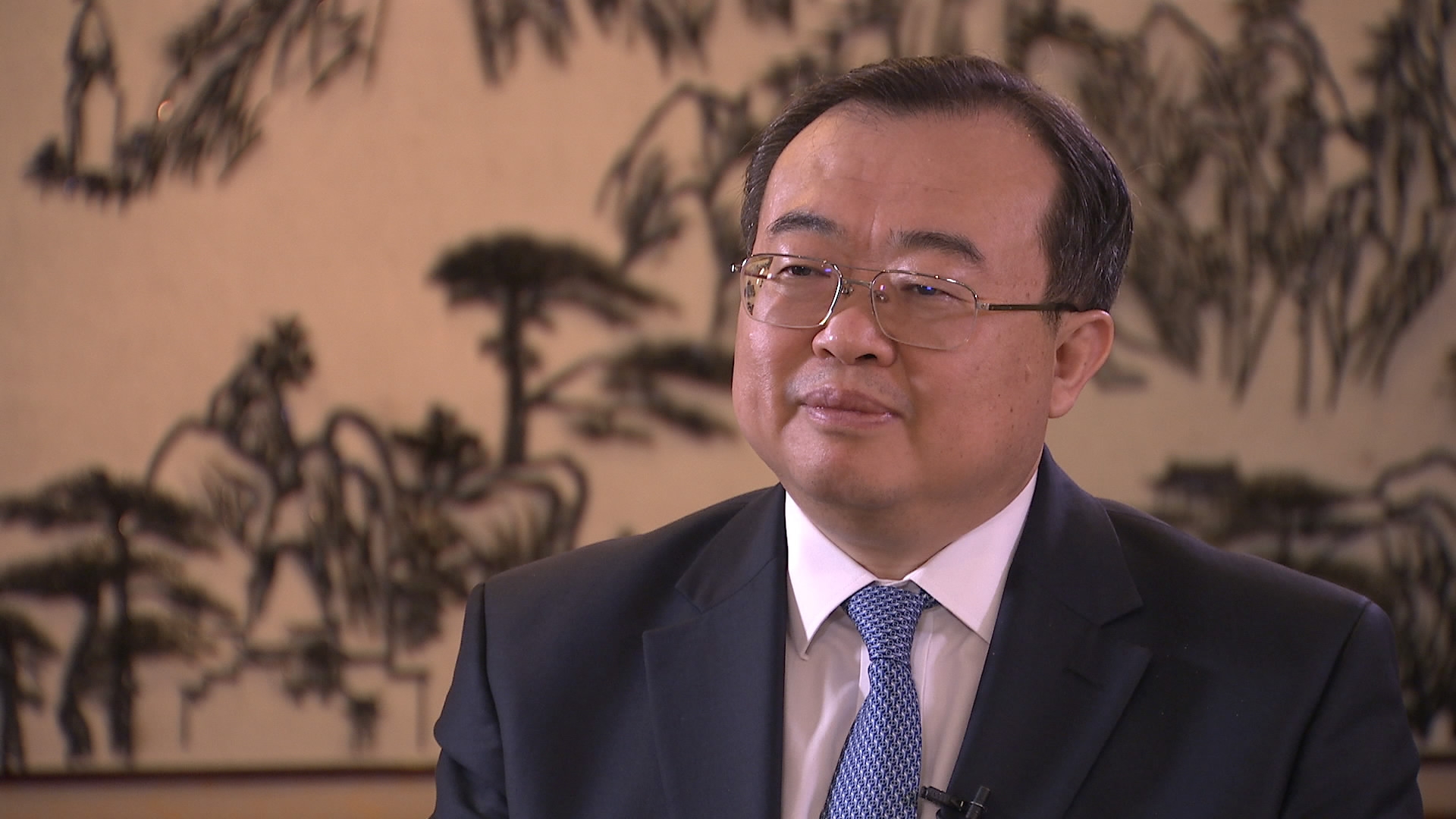
Opinions
07:59, 28-Mar-2018
China’s new governance: The National Supervisory Commission
By CGTN’s Closer to China

Since China’s reform and opening up began in 1978, there have been seven rounds of institutional reform within the State Council, or the cabinet. Each time, these policy shells have proved to be more of bluster than boom.
However, during the momentous restructuring of the Chinese government in 2018, one institution stood out and received a great deal of attention: The National Supervisory Commission (NSC).
The Commission is dedicated to the supervision of all personnel exercising public powers, as opposed to only Party members as in the past. It aims to ensure all relevant personnel are free from corruption, and it reports directly to the highest legislative body in China, the National People’s Congress (NPC). The NSC is independent of the State Council, the Supreme People’s Court and the Supreme People's Procuratorate. It came into being following the passing of the latest National Supervision Law, as part of the Constitutional amendment which introduced major adjustments to China’s political climate.
The NSC, with its parallel standing with the State Council, the Supreme People’s Court and the Supreme People's Procuratorate, is now officially a powerhouse to combat corruption and build a clean government. The NSC incorporated the Ministry of Supervision and the National Bureau of Corruption Prevention, which were originally organs to the State Council, and the Department of Anti-corruption and Bribery, which was a key component to the Supreme People's Procuratorate.
Unlike the tripartite system in the United States, where executive, legislative and judicial powers exercise checks and balances, China’s tripartite system separates supervisory, administrative and judicial powers, but they all fall under the aegis of the NPC, which itself is under the leadership of the Party Central Committee.

Liu Jianchao, Director, Zhejiang Provincial Supervisory Commission. /CGTN Photo
Liu Jianchao, Director, Zhejiang Provincial Supervisory Commission. /CGTN Photo
Liu Jianchao, secretary of the Zhejiang Commission for Discipline Inspection and the director of the Zhejiang Provincial Supervisory Commission, said: “In investigating a party member, as the secretary, I have to investigate which discipline has been violated and impose appropriate punishments in accordance with the party’s disciplinary regulations.”
“In the process, one may also be found having violated the law at the same time, which constitutes a scenario for me to wear ‘the other hat’, the hat of the director of the supervisory commission,” Liu added. “I will check his or her violation of the law, and will impose suitable administrative sanctions on that person. If he or she is suspected of having committed a crime, I will transfer the case to the inspection agency. Thus the two functions are not in contradiction.”
According to the CPC Constitution and China's Supervision Law, the provincial commission for discipline inspection falls under the leadership of the provincial Party committee, but also accepts the leadership of the commission for discipline inspection at a higher level, with the superior discipline inspection commission holding a bigger say.
The supervisory commission, on the other hand, follows the leadership of the Party committee at the same level, as well as the leadership of the superior supervisory commission, to allow for adequate checks and balances.
The provincial commission for discipline inspection not only reports to the secretary of the provincial Party committee, but also to the CCDI. The Provincial Supervisory Commission not only reports to the secretary of provincial Party committee, but also to the NSC.
This ensures that a single case will not be decided by one person in the whole process, but a whole range of people from different groups. This is to prevent possible loopholes and other problems from occurring. These procedural arrangements were designed to ensure the accountability of both the officials who exercise public powers and the people who supervise them.
This latest move with the NSC suggests that positive political change is always possible regardless of the single party - or more accurately, dominant party - system of government.
A political system with strong institutions allows for both political stability and accountability, making governance less susceptible to the whims of a particular party or government. The designs of NSC by the Communist Party of China are as self-reinforcing and bold a political maneuver as China has ever seen.
As the NSC extends its supervision to all stakeholders with any element of public power, the governance of China is being brought up to a new scale never seen before.
Though uncharted waters lie ahead, the implementation of the NSC is an indelible step on China’s drive for better governance.

SITEMAP
Copyright © 2018 CGTN. Beijing ICP prepared NO.16065310-3
Copyright © 2018 CGTN. Beijing ICP prepared NO.16065310-3